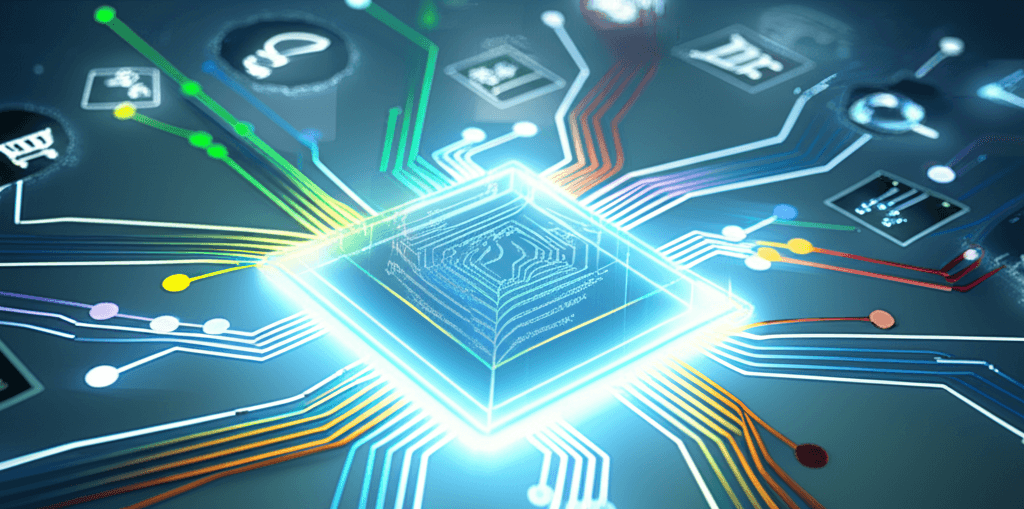OpenAI Powers Autonomous AI Agents with Open Standard External Tool Access
OpenAI's API now empowers next-gen AI agents with seamless external data access, integrated tools, and enhanced reliability.
May 22, 2025

OpenAI has significantly enhanced its API offerings for developers and businesses, focusing on the "Responses API" with the introduction of support for remote Model Context Protocol (MCP) servers and a suite of new built-in tools designed to augment applications built with GPT-4o and the broader o-model family.[1][2] These updates aim to simplify the creation of more capable and autonomous AI agents, streamlining the integration of external data sources and complex functionalities.[1][2]
A cornerstone of the recent upgrade is the integration of support for remote MCP servers within the Responses API.[1][2] The Model Context Protocol (MCP) is an open standard, notably also adopted by other AI companies like Anthropic, designed to manage how AI models access and interact with external tools and data sources.[2] By enabling connectivity to any MCP-compatible server, OpenAI is allowing developers to more seamlessly link their AI applications to a wide array of third-party services and proprietary datasets.[1][2] Examples of such integrations could include platforms like Stripe for payments, Twilio for communications, or various customer relationship management (CRM) and e-commerce systems such as Shopify, PayPal, and Intercom.[2][3] This move is expected to foster a rapidly growing ecosystem of MCP servers, empowering developers to build AI agents that can leverage users' existing tools and data more effectively.[1][3] OpenAI has also signaled its commitment to this standard by joining the MCP steering committee.[1][3] This architectural enhancement simplifies how developers can equip their models with the necessary context and capabilities for complex task completion, moving beyond siloed AI functionalities.[2][4]
Complementing the MCP server support, OpenAI has embedded several new tools directly into the Responses API.[1][2] These tools are available across the GPT-4o series, the recently introduced GPT-4.1 series, and OpenAI's o-series reasoning models.[1] A significant addition is the integration of OpenAI's latest image generation model, gpt-image-1, directly as a tool.[1][2][5] This allows for image generation within the same API flow used for text-based responses, supporting real-time streaming for image previews and multi-turn edits for granular refinement.[1][5] Another key tool now available is the Code Interpreter, previously popular in ChatGPT, enabling models to perform data analysis, solve complex mathematical problems, process images, and execute code.[1][2][5] File search capabilities within the Responses API have also been upgraded, now supporting attribute-based filtering and the ability to search across multiple vector stores.[1][2][4] These built-in tools aim to allow models to achieve higher performance in tool calling and to create more capable agents through a single API call.[1] The o3 and o4-mini models, part of the o-series, can now directly call these tools and functions within their chain-of-thought, preserving reasoning tokens across requests and tool calls, which is intended to improve model intelligence while reducing cost and latency.[1]
These enhancements to the Responses API, which OpenAI positions as its core primitive for building "agentic" applications, are geared towards improving reliability, visibility, and privacy for enterprise and developer use cases.[1][2] New features addressing these aspects include a "background mode" for handling long-running tasks asynchronously, which means connections do not need to remain open, thereby increasing reliability.[1][2][5] The API now also supports "reasoning summaries," providing concise, natural-language explanations of the model's internal chain-of-thought, similar to what is seen in ChatGPT.[1][5][4] This feature is designed to aid developers in debugging, auditing, and creating better end-user experiences, and is offered at no additional cost.[1][5] For customers with zero-data-retention agreements, OpenAI has introduced support for encrypted reasoning items, allowing reasoning data to be passed between API requests without being stored on OpenAI's servers.[1][2][5] This is particularly beneficial for models like o3 and o4-mini, as reusing reasoning items can boost intelligence and reduce token usage.[1][5] The Responses API was first introduced in March 2025, and OpenAI has indicated it represents the future direction for building AI agents, with advanced features like MCP integration being exclusive to this API.[1][6][4] The company plans to eventually deprecate the older Assistants API by mid-2026, encouraging developers to migrate to the more versatile Responses API for new projects.[7][8]
The implications of these upgrades are significant for the AI industry. By embracing an open standard like MCP and providing more integrated tools, OpenAI is facilitating the development of more sophisticated AI agents that can interact with a broader range of digital environments and data.[2][3] This move also intensifies the competitive landscape, as API capabilities and developer ecosystems become increasingly important differentiators among AI model providers.[9] The focus on agentic applications—AI systems that can perform tasks autonomously—reflects a broader trend in the industry towards creating more proactive and capable AI assistants.[6][9][7] The enhancements to models like GPT-4o and the specialized o-series, particularly in their ability to use tools and maintain context, suggest a push towards more powerful and efficient reasoning capabilities within these AI systems.[1][10] As businesses and developers leverage these new features, the complexity and utility of AI-powered applications are expected to grow, further integrating AI into diverse workflows and industries.[11][12][13] OpenAI's strategy appears to be focused on providing robust building blocks for developers, enabling a wider range of applications, from improved customer support bots to complex research and data analysis agents.[7][8]
Sources
[1]
[3]
[4]
[5]
[6]
[7]
[8]
[9]
[10]
[11]
[12]